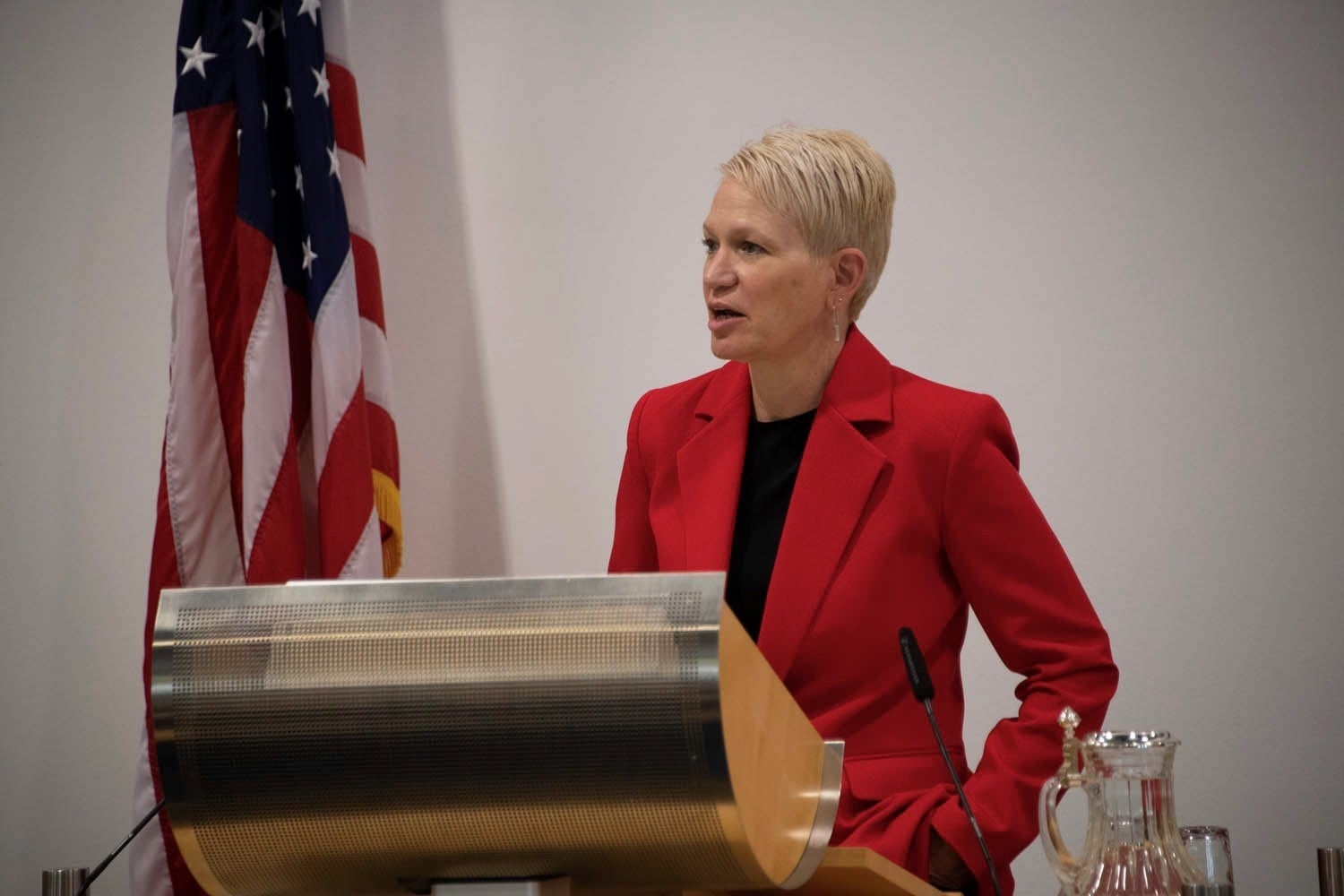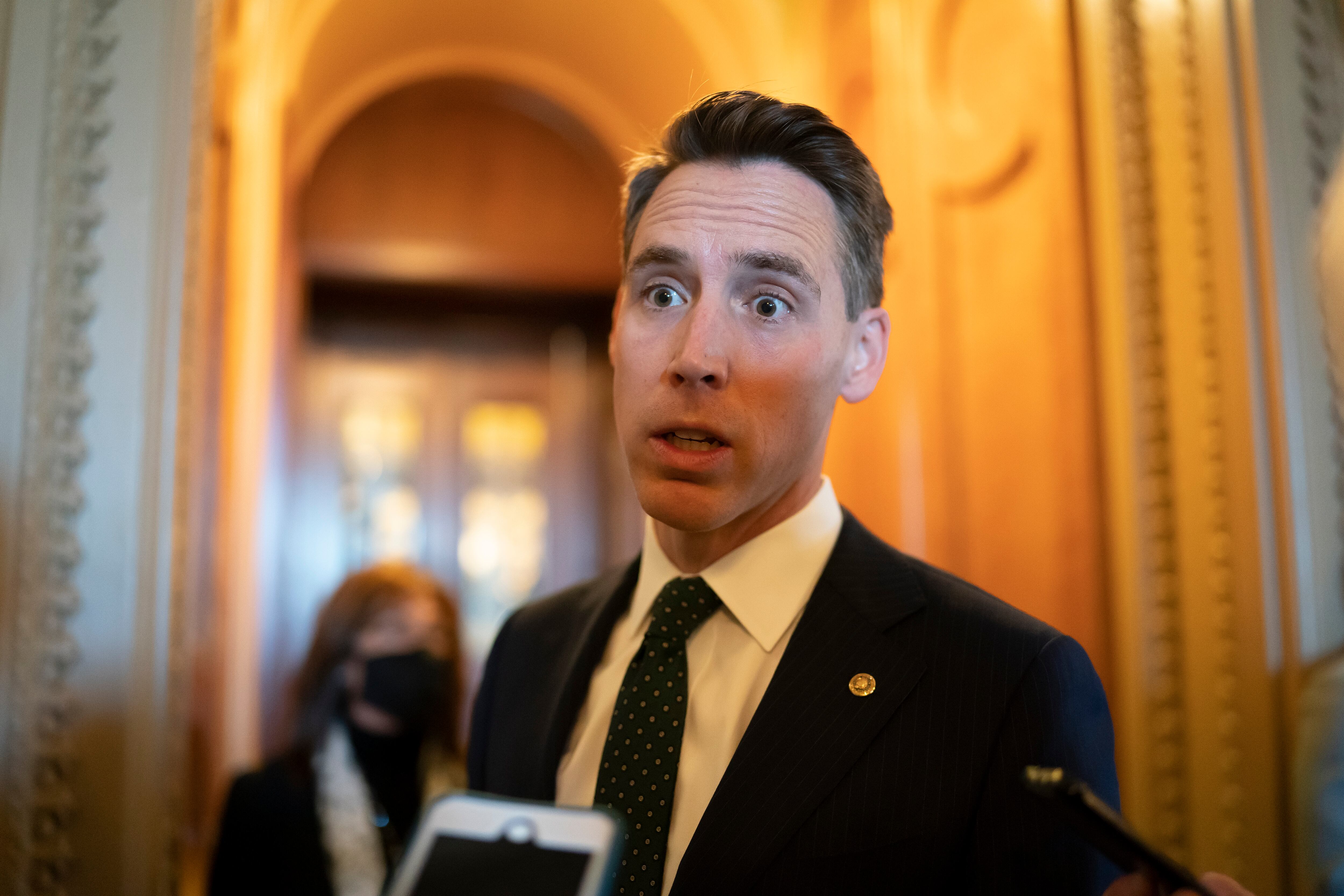

Joe Gould
Joe Gould was the senior Pentagon reporter for Defense News, covering the intersection of national security policy, politics and the defense industry. He had previously served as Congress reporter.
All Stories By Joe


Republican budget plan will ‘undermine’ US security, warns Biden admin
The Biden administration is portraying plans from Republicans to gut the federal budget as jeopardizing national security.

Senate confirms Wallander to Pentagon international affairs role
The Senate on Wednesday confirmed Russia expert Celeste Wallander to be the Pentagon’s assistant defense secretary for international security affairs.

The US has spent billions on equipment and training in Europe to deter Russia. Is it enough?
Amid the prospect of Russia invading Ukraine, top experts say the unfolding crisis will test the U.S. military’s ability to seamlessly and rapidly move American troops and heavy armor across the borders of multiple countries and could also magnify potential gaps in both strategy and capability.

Pentagon worried about mergers, especially among hypersonic weapons suppliers
The report from DoD’s acquisition and sustainment office, which says broadly that consolidation poses a national security risk, marks the strongest U.S. government objection to merger and acquisition activity since the defense secretary in 2015 discouraged deals among the largest prime contractors.

GOP senator blocks Russia pro from joining Pentagon, drawing fiery rebuke
A key Russia expert and two other defense experts are being blocked from joining the Pentagon by GOP Sen. Josh Hawley, as the Biden administration struggles to solve the deepening Russia-Ukraine crisis and deploys thousands of U.S. troops to bolster European allies.

Pentagon taps Bloomberg to head Defense Innovation Board
Former New York City Mayor Michael Bloomberg has been named chairman of the Defense Innovation Board, which is part of the latest tranche of Pentagon advisory boards Defense Secretary Lloyd Austin is restarting.

Arab-Israeli missile defense has a shot, says CENTCOM nominee
In the wake of recent missile and drone attacks against the UAE by Iranian-backed Houthi rebels, there’s a fresh opportunity to integrate air and missile defense in the Mideast, says Lt. Gen. Michael Kurilla.

Russia, inflation and Washington gridlock: Biden’s next defense budget is still a big question mark
If Russian President Vladimir Putin invades Ukraine, defense analysts foresee a boost in the U.S. troop presence in Europe that would trigger a supplemental defense funding request to Congress so as not to deplete other Pentagon accounts.

No clear return date for troops headed to Europe amid Russia threats
Lawmakers were briefed Thursday by senior administration officials about the troop moves and latest tensions in Ukraine.

Censoring weapons tests risks troops’ lives, says Warren
Elizabeth Warren is calling on the Pentagon to stop censoring its annual weapons testing report.



